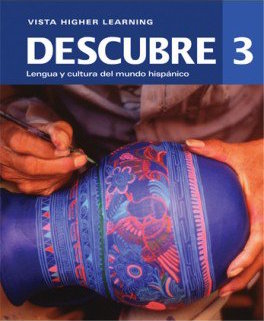
All Solutions
Page 174: Que aprendiste?
**Please indicate whether these statements are true or fake.**
*Correct the false ones.*
**2. cierto / True**
**3. falso / fake** : Dos de las terceras partes del café se produce en América: *(Two of the thirds of the coffee is produced in America.)*
**4. falso / fake** : Llegó a América en el siglo 18. *(Came to America in the 18th century.)*
**5. falso / fake** : Pocos años después de su cultivo se extendió a México. *(A few years after its cultivation it spread to Mexico.)*
**6. cierto / True**
**7. cierto / True**
**8. falso / fake** : Fue Costa Rica. *(Was Costa Rica.)*
**9. falso / fake** : Puedes ver el proceso de cultivo, producción y tomar café. *(You can see the process of growing, production and drink coffee.)*
**10. cierto / True**
**Translation**
**1.** Estate Esperanza Verde is located in a mountainous area of Costa Rica.
**2.** Tourists who go to Estate Esperanza Verde can visit a coffee plantation that is right there.
**3.** Half of the world’s coffee is produced in America.
**4.** Coffee is originally from the American continent.
**5.** Coffee came to America through Mexico.
**6.** Producers had to diversify their activities due to low coffee prices.
**7.** The purpose of fair trade cooperatives is to help producers receive fair payment and consumers pay reasonable prices.
**8.** The first country to create a coffee route was Honduras
**9.** Tourists can visit the plantations but cannot witness the production process.
**10.** Tourists who go to the coffee route also usually visit the historical routes of the area.
**Complete the sentences with the correct information.**
**1.** Panama Canal is in Panamanian hands since **December 31 of 1999 / 31 de diciembre de 1999**
**2.** The Panama Canal has **two artificial lakes / dos lagos artificiales**
**3.** A lock system is used because **not the entire canal is at sea level / no todo el canal se encuentra al nivel del mar**
**4.** In the Caribbean *guagua* means **bus / bus**
**5. The Spanish and the Portuguese / Los españoles y los portugueses** spread the tomato throughout the Middle East.
**In pairs, answer the questions**
**2.** Do you prefer organic products and products that guarantee fair trade or do you buy common products?
**3.** What type of tourism do you usually do? Have you ever done ecotourism?
**4.** What foods from other continents are part of your diet?
____
**Answer**
1. Es muy importante porque lo consume la mayor parte de la comunidad pero aquí no lo producimos, entonces no tenemos una cultura de café tan exigente como la centroamericana.
2. Sí, prefiero comprar a pequeños productores porque además de ser productos mayormente orgánicos, también en muchos productos me entregan más por menos dinero.
3. Mayormente he visitado ciudades de latino américa pero también pude disfrutar de sus parques ecológicos.
4. Del sur del continente consumo banano ecuatoriano y manzana chilena, de Europa mediterránea consumo aceite de oliva.
1. It is very important because most of the community consumes it but we do not produce it here, so we do not have a coffee culture as demanding as Central America.
2. Yes, I prefer to buy from small producers because in addition to being mostly organic products, many products also give me more for less money.
3. I have mostly visited cities in Latin America but I was also able to enjoy their ecological parks.
4. From the south of the continent I consume Ecuadorian bananas and Chilean apples, from Mediterranean Europe I consume olive oil.
**In groups of three, discuss these questions:**
**2.** *What consequence does the arrival of tourism have in certain areas?*
**3.** *What are the benefits of traveling?*
—-
**Answer**
1. Sí es bueno porque da a conocer el país a nivel mundial y si hay cada año más turismo, es más ingreso para la economía del país.
2. No siempre es bueno porque acaban con recursos naturales que muchas veces son únicos.
3. Viajar es muy bueno porque abre tu mente a diferente culturas y con cada viaje estás más cerca de ser un ciudadano del mundo.
1. Yes it is good because it makes the country known worldwide and if there is more tourism every year, it is more income for the country’s economy.
2. It is not always good because they end up with natural resources that are often unique.
3. Traveling is very good because it opens your mind to different cultures and with each trip you are closer to being a citizen of the world.

